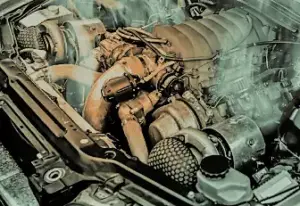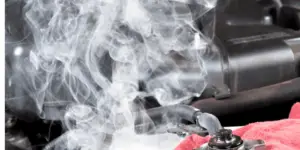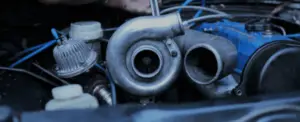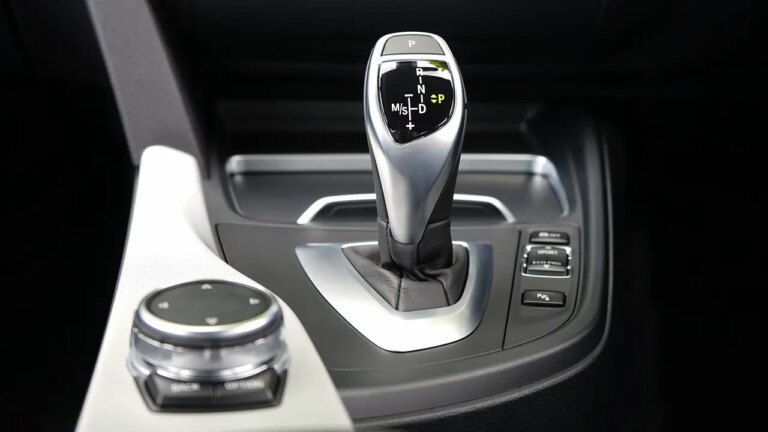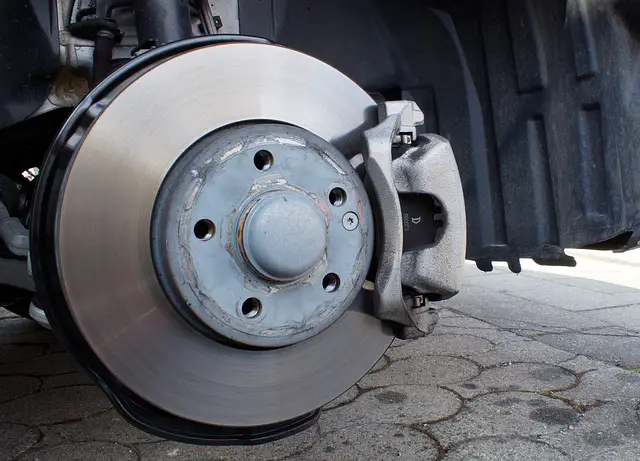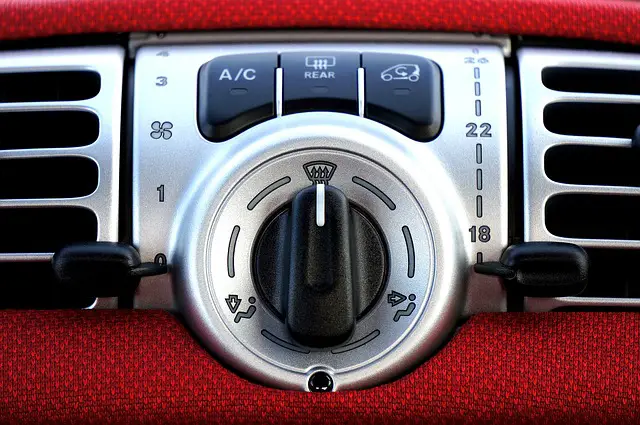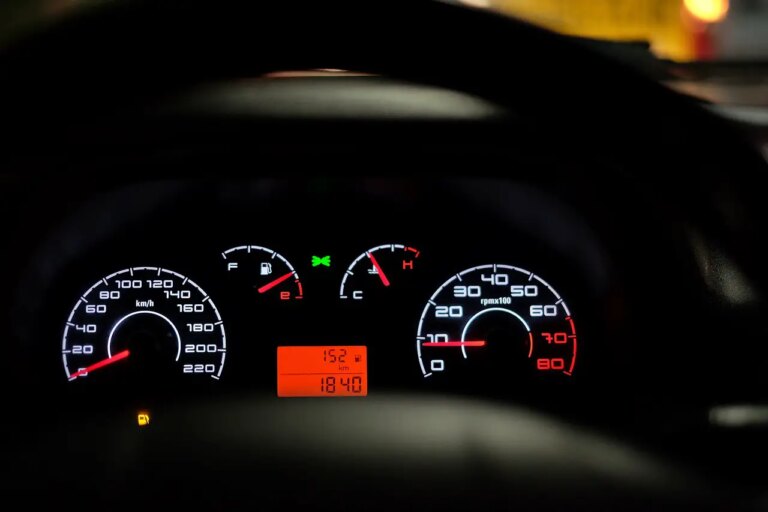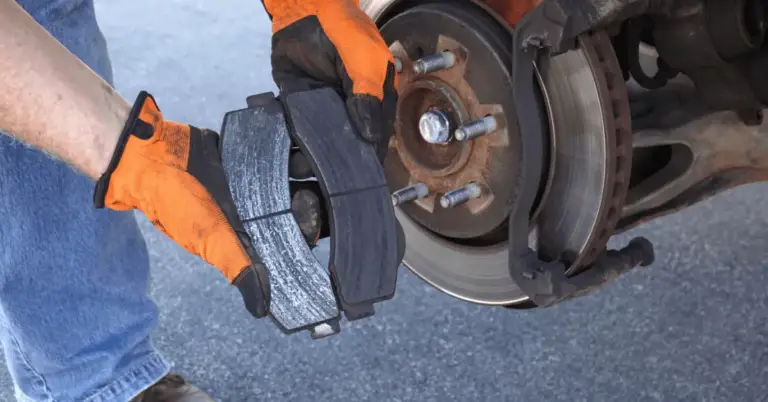A hissing sound can indicate a vacuum leak in your vehicle. This leak is usually caused by a loose fitting or cracks in a hose, gasket, or one of your vehicle’s valves, allowing air to escape. It could also be due to air escaping from a vacuum line.
There are other reasons, and below we will examine all of them and their dangers and costs.
MAF Sensor
The MAF is responsible for measuring the air entering the engine’s intake manifold. When the MAF leaks, air escapes from the car rather than entering the engine, producing an audible hissing sound.
Many factors, including a faulty MAF sensor, a bad intake tube, or a damaged O-ring seal, can cause MAF leaks.
In some cases, the MAF may be covered in dirt or debris, which can restrict the amount of air entering the engine, resulting in a loss of power.
The cost of repairing or replacing the MAF leak will depend on your car type and the problem’s severity. Replacing the O-ring is inexpensive and can range from $30 to $100.
The cost of replacing the entire MAF can be much higher and can range from $300 to $900, depending on the car type.
EGR Valve
An EGR valve, or Exhaust Gas Recirculation valve, regulates the amount of exhaust gas recirculated back into the engine. This helps reduce emissions from the engine and keep it running efficiently.
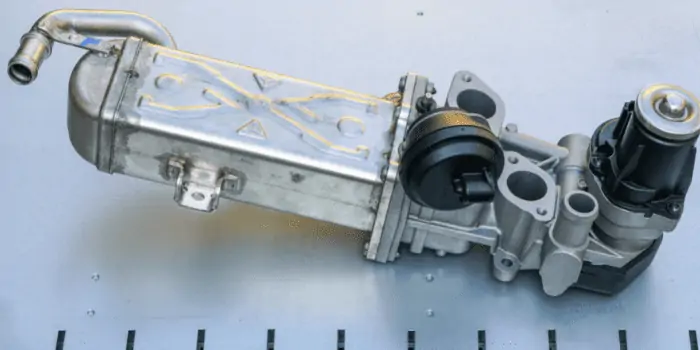
When the EGR valve leaks, it can cause a hissing sound due to the escaping exhaust gas. This is caused by the valve being worn out or a damaged gasket. As the valve ages, it can become clogged or worn, resulting in a leaky valve.
An exhaust smell near the front of the car and poor fuel economy usually accompanies it.
Related content: Symptoms of A Bad EGR Valve – Is It Expensive To Replace?
Exhaust Manifold Gasket
The gaskets are made of steel or sometimes ceramic or even fiber materials that have been compressed very tightly.
Due to the high temperatures, the gasket can become worn out or cracked, causing gas to leak out. When this happens, it can create a hissing sound, similar to air escaping from a hole.
The hissing sound is particularly noticeable when the engine is revving, and it can become louder as the leak worsens.
A more serious problem can cause an exhaust manifold gasket leak. A crack in the cylinder head, a warped or broken manifold.
A cracked cylinder head is usually caused by overheating. In contrast, a broken manifold usually happens when a car is grounded, or the underside hits something hard.
Repairing or replacing an exhaust manifold gasket is relatively simple and inexpensive.
Depending on the type of car, the parts and labor costs can range from $150 to $400. You can do the job yourself for much less.
Throttle Body Gasket
The throttle body is a part of the car’s engine that regulates the amount of air that enters the engine. When the throttle body leaks, it can cause various problems, such as poor performance, stalling, and decreased fuel economy.
A leak in the throttle body can happen for various reasons, the most common being a worn-out gasket.
The gasket is a rubber seal between the throttle body and the intake manifold. Air can leak from the throttle body as the gasket deteriorates, resulting in a hissing sound.
Generally, a simple gasket replacement should cost around $100 to $150, while a full throttle body replacement can range from $200 to $400.
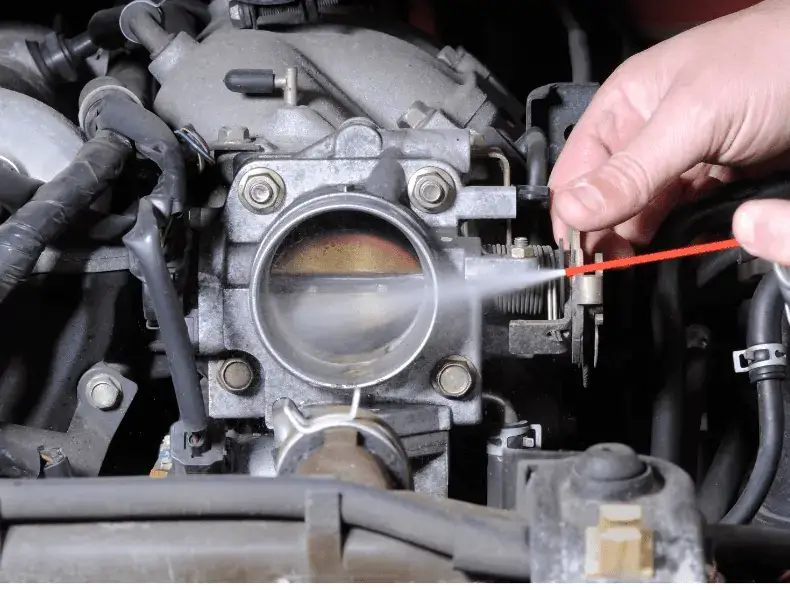
Sometimes, a throttle body leak can be repaired with a simple sealant, but this is not recommended as it may not be effective in the long run.
Often read next: What Does a Ported Throttle Body Do?
Brake Booster
The brake booster helps to create a vacuum pressure that helps to reduce the amount of effort required to press the brake pedal.
When the brake booster leaks air, this can create a hissing sound. The sound is usually louder when the driver presses the brake pedal and reduces when the pedal is released.
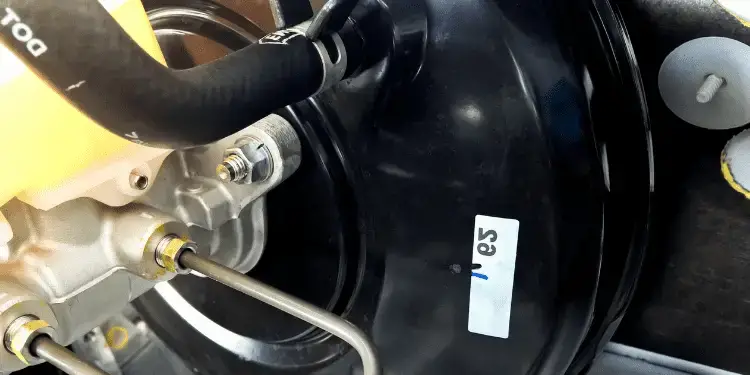
The cost to repair or replace a brake booster can vary depending on the make and model of your car, as well as the severity of the damage.
Generally, you’ll pay around $200 to $400 to repair or replace a brake booster.
Related article: Causes Of A Hissing Noise When Braking [Help & Advice]
Loose or Damaged Hoses
Vacuum hoses are an integral part of a car’s engine. They carry air between the intake manifold and the engine’s intake valves. As the engine runs, air is sucked from the manifold into the cylinders and then expelled as exhaust.
Vacuum hoses can develop leaks due to age, wear, and tear.
In addition, they can be damaged by oils, chemicals, and extreme temperatures. If left unrepaired, the leaking air can affect the engine’s performance, leading to increased fuel consumption and decreased engine power.
Related: Is Your Car Making A Whistling Noise At Idle? Help and Advice
Fortunately, repairing or replacing the vacuum hose is a relatively simple and inexpensive job.
Depending on the size of the leak, you may need just to patch it or replace the entire hose. Replacing the hose can cost anywhere from $50 to $100, depending on the car’s make and model and the hose’s length.
PCV Valve
A PCV (Positive Crankcase Ventilation) valve is a part of the engine that helps to regulate the pressure in the crankcase.
This regulates the amount of unmetered air sucked into the combustion chamber and controls the amount of emissions released into the atmosphere. When a PCV valve becomes faulty, it can cause a leak that allows air to escape and creates a hissing sound.
A faulty seal or gasket is the most common cause of a PCV valve leak. This can cause the valve to become stuck or leaky, allowing air to escape. Other potential causes include a dirty or clogged valve or a faulty valve spring.
When a PCV valve starts to leak, it can sound like air is being sucked out of the engine. It’s most likely heard when the engine runs and louder when the accelerator pedal is pushed down.
A leaking PCV valve can cause various other problems, such as increased oil consumption and an overly rich fuel mixture. The valve will need to be replaced or repaired to fix the problem.
Replacing or repairing a PCV valve is a relatively cheap and easy job.
Depending on the make and model of the car, it can cost between $50 and $100 for the parts and labor, plus any additional costs for diagnostics.
In conclusion
In conclusion, a hissing sound can be caused by a number of different components in a car, including the MAF Sensor, EGR Valve, Exhaust Manifold Gasket, and PCV Valve. A leaking brake booster can also cause it.


